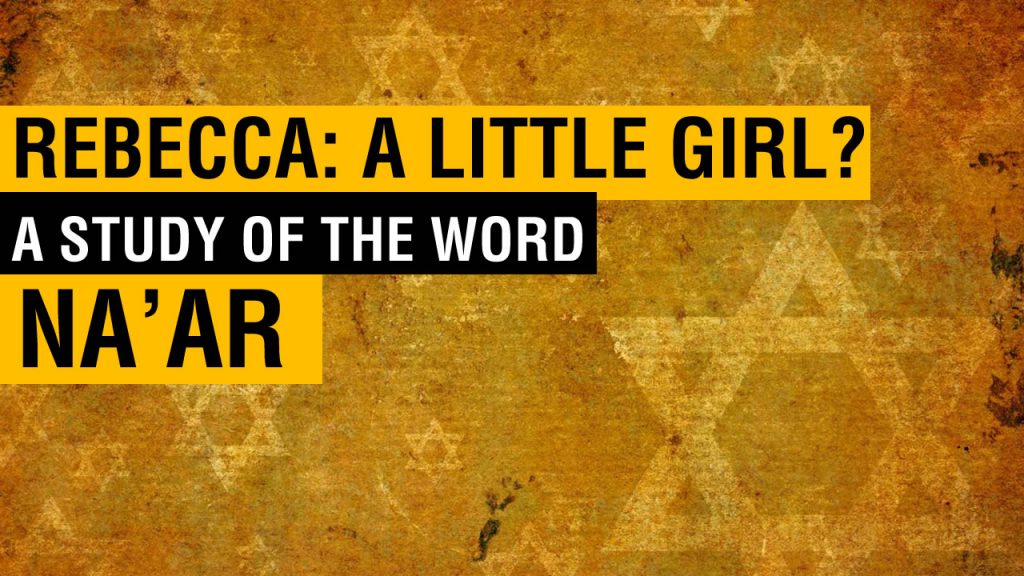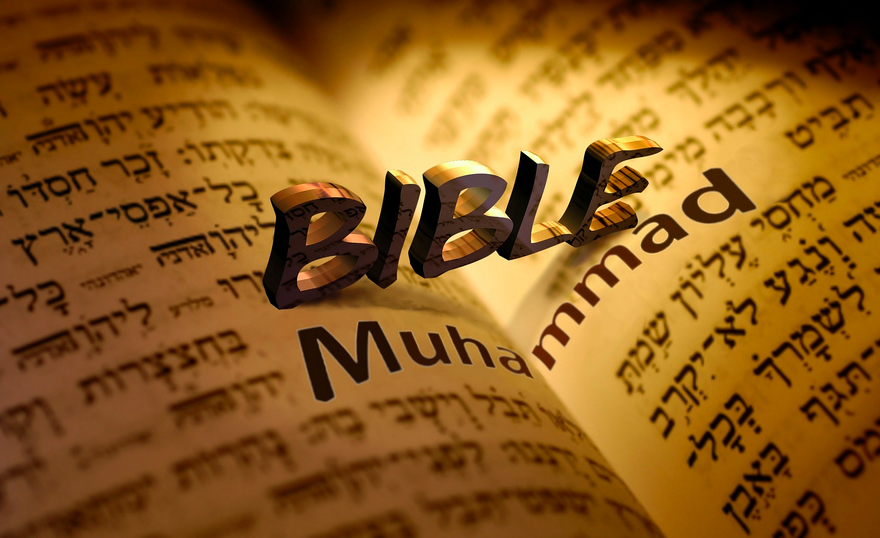Few days ago, we looked at the common objections the Muslims often bring forth as a defense or response to the charges of Muhammad marriage to Aisha at the age of 6 and consummating the marriage at the age of 9. They often come up the old tale that Rebecca must have been a little girl when she got married to Issac as well. I have written an article which addresses the question of whether Rebecca was a girl of 3 year old girl or not, you may want to read that here. With that said, in this article, we shall take a look at the hebrew word “na’ar”
There have been many attempts by Muslims to defend the marriage between Muhammad’s child bride, Aisha and the Prophet of Islam, especially when confronted by Christians on this matter. While there is a division and various theories as to the real age of Aisha (even though the Hadith states the age) when Muhammad married and had sex with her, some Muslims feel the need to defend this action using the Bible.
Therefore, some have come up with the notion or idea that Rebecca must have been a 3 little child or girl just because the word “naar” was used for her, is it true according to this word that Rebecca was a little girl? Let take a look into this word a little deeper.
Mustafa Ahmed provided a few bible verses to prove that Rebecca was a little girl, and here are a few of the verses,
When she opened it, she saw the child, and behold, the baby (NAAR) was crying. She took pity on him and said, “This is one of the Hebrews’ children.”(Exodus 2:6)
Moses answered, “We will go with our young (NAAR) and our old, with our sons and our daughters, and with our flocks and herds, because we are to celebrate a festival to the LORD.” (Exodus 10:9)
Turning to Jether, his oldest son, he said, “Kill them!” But Jether did not draw his sword, because he was only a boy (NAAR) and was afraid. (Judges 8:20)
Then Manoah prayed to the LORD and said, “O Lord, please let the man of God whom you sent come again to us and teach us what we are to do with the child (NAAR) who will be born.” (Judges 13:8)
Then the woman gave birth to a son and named him Samson; and the child (NAAR) grew up and the LORD blessed him. (Judges 13:24)
And when she had weaned him, she took him up with her, along with a three-year-old bull, an ephah of flour, and a skin of wine, and she brought him to the house of the LORD at Shiloh. And the child was young(NAAR). (1 Samuel 1:24)
“Start running,” he told the boy, “so you can find the arrows as I shoot them.” So the boy (NAAR) ran, and Jonathan shot an arrow beyond him. (1 Samuels 20:36)
David pleaded with God for the child (NAAR). He fasted and spent the nights lying in sackcloth on the ground. (2 Samuel 12:16)
Hadad fled to Egypt, along with some Edomites from his father’s servants. At the time Hadad was a small boy (NAAR). (1 kings 11:17)
young men and women, old men and children (NAAR). (Psalm 148:12)
Mustafa had carefully selected only places where the word “naar” is used to refer to a child or small boy, as if that is all that the word meant, this is very deceptive, and it was done on purpose, but the question we need to ask if, is that all there is to the meaning of the word?
Now of course, the idea is to come to the conclusion that, since the word “na’ar” was used for children, little boy and girl, that is all it stand to mean, before analyzing this whole thing, let us look up the word na’ar in the Hebrew Lexicon of the Bible and see what its says, we turn to the Strong’s Hebrew Lexicon and here is what it says about the word “naʻar” נַעַר, nah’-ar; a boy (as active), from the age of infancy to adolescence; by implication, a servant; also (by interch. of sex), a girl (of similar latitude in age):—babe, boy, child, damsel (from the margin), lad, servant, young (man).
Merely looking at this verse alone, we get the idea that this word is used in a variety of way, and is not limited or applied to a boy or girl alone, this is even applied to damsel and young men. The interestingly is that even servants were called na’ar, does this makes them a little child too?
Mustafa asked if Ruth was a na’ar, bearing in mind that this has a variety of meaning, lets see from the book itself, if Ruth was a little girl or a matured woman, we turn to the book of Ruth 2:5,
Then said Boaz unto his servant that was set over the reapers, Whose damsel is this?
Please note that there are two interesting words in this verse alone, the hebrew na`ar word for servant and the word na`arah for damsel, since Mustafa’s argument is that, Ruth was also a little girl when she got married to Boaz, how then do we explain Ruth 3:2, is this place saying that Ruth was Boaz’s little girl? A little girl working in the field of corn? How weird can this get?
Another very practical example is the case of Dinah, the daughter of Jacob, we read in Genesis 34:3-4, we read;
And his soul clave unto Dinah the daughter of Jacob, and he loved the damsel, and spake kindly unto the damsel.
And Shechem spake unto his father Hamor, saying, Get me this damsel to wife.
Again, since the word was used for Dinah, the conclusion was that she was a girl, in fact a mere reading of the scriptures will show that this is not so, was Shechem asking for a girl for a wife? Bearing in mind that the word for wife is the same word for woman which was used for Eve as well. All these are futile attempts just to justify the shameful act of Muhammad the Muslims are not convenient with, therefore seeking a support for this in the Scriptures.
And lastly, we look at the case of Esther, this verse was quoted to drive home his assertion that Esther was also a little girl, we read in Esther 2:4
And let the maiden which pleaseth the king be queen instead of Vashti. And the thing pleased the king; and he did so.
Now, without going into much of a detail on this, verse 12 knocks off this weird assertion off by indicating that these practices are not for young girls but for women, we read;
Now when every maid’s turn was come to go in to king Ahasuerus, after that she had been twelve months, according to the manner of the women, (for so were the days of their purifications accomplished, to wit, six months with oil of myrrh, and six months with sweet odours, and with other things for the purifying of the women;)
As if this was not enough evidence, verse 17 indicates that these are all women since it says the king prefer Esther above all other women and not girls, we read;
And the king loved Esther above all the women, and she obtained grace and favour in his sight more than all the virgins; so that he set the royal crown upon her head, and made her queen instead of Vashti.
In conclusion, we see that this is nothing but a display of either ignorance of the scripture or a desperate attempt to find a justification for the action of the prophet of Islam in the Bible, which does not exist in the first place. If Muslims are ashamed of the actions of their prophet, then, he is not worth emulating in the first place.



